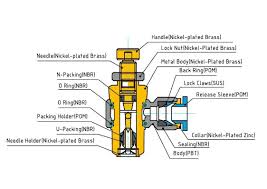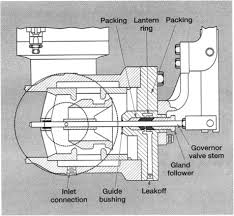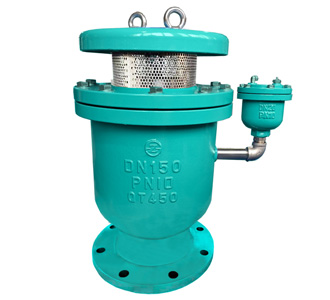Throttle Valve

The Application of Throttle Valve
Introducing the Rotork Throttle Valve, a pivotal component in industrial systems renowned for its precision and reliability. Designed to regulate fluid flow with utmost accuracy, it plays a vital role in various applications. In instances of boiler pressure relief valve leaking or issues with fuel pressure relief valve, the Rotork Throttle Valve offers a dependable solution, effectively managing pressure differentials to ensure optimal performance. Crafted with Rotork’s expertise and commitment to excellence, this valve exemplifies durability and efficiency. Whether controlling steam flow in boilers or regulating fuel distribution in engines, the Rotork Throttle Valve delivers consistent and controlled fluid management. Trust Rotork for innovative solutions that meet the demands of modern industries, with the Throttle Valve setting the standard for precision engineering and reliable operation.
What Is Throttle Valve?
A Throttle Valve is a device used to regulate fluid flow by controlling the cross-sectional area of the passage through which the fluid flows, typically by adjusting a valve or a throttle plate.
How Does Throttle Valve work?
The Throttle Valve works by adjusting the size of the passage through which fluid flows, controlling the flow rate and pressure within a system.
Features of Throttle Valve
- Precision: Throttle Valves offer precise control over fluid flow rates, ensuring accurate adjustment.
- Versatility: They are adaptable to various systems and applications, from engines to industrial processes.
- Efficiency: Throttle Valves optimize fluid flow, enhancing system efficiency and performance.
- Durability: Constructed from high-quality materials, they exhibit durability and resilience in demanding conditions.
- Responsive: These valves respond quickly to adjustments, facilitating immediate changes in flow rates.
- Safety: Throttle Valves contribute to system safety by regulating fluid flow and preventing overpressurization.
- Maintenance: They require minimal maintenance due to their robust design and reliable operation.
- Compatibility: Throttle Valves are compatible with a wide range of fluids, making them suitable for diverse applications.
- Customization: They offer options for customization to meet specific requirements, ensuring optimal performance.
Advantages of Throttle Valve
- Flow Control: Throttle Valves provide precise control over fluid flow rates, allowing for fine adjustments according to system requirements.
- Efficiency: They optimize system efficiency by regulating flow rates, minimizing energy wastage.
- Performance Enhancement: Throttle Valves improve overall system performance by maintaining consistent flow rates and pressure levels.
- Safety: These valves contribute to system safety by preventing overpressurization and potential damage to equipment.
- Versatility: Throttle Valves are versatile, suitable for use in various industries and applications, from automotive to industrial processes.
- Reliability: They offer reliable operation, ensuring continuous and stable flow control over extended periods.
- Cost-Effectiveness: Throttle Valves help reduce operational costs by optimizing energy consumption and minimizing downtime due to system malfunctions.
- Durability: Constructed from high-quality materials, Throttle Valves exhibit durability and longevity, reducing the need for frequent replacements.
- Adaptability: They can be customized to meet specific system requirements, offering flexibility and compatibility with different fluid types and operating conditions.

The Specifications of Throttle Valve
| Specification | Details |
|---|---|
| Type | Throttle Valve |
| Ball Material | N/A |
| Attachment Type | Threaded |
| Thread Standard | ANSI/ASME B1.20.1 |
| Thread Size | Various sizes available |
| Body Material | Stainless Steel |
| Safe for Use With | Various fluids and gases |
| Handle Type | Lever |
| Handle Material | Stainless Steel |
| Maximum Working Pressure | 150 psi |
| Maximum Working Pressure | 10.34 bar |
| Operating Pressure | Dependent on system settings |
The Parameter of Throttle Valve
- Type: Throttle Valve
- Ball Material: N/A
- Attachment Type: Threaded
- Thread Standard: ANSI/ASME B1.20.1
- Thread Size: Various sizes available
- Body Material: Stainless Steel
- Safe for Use With: Various fluids and gases
- Handle Type: Lever
- Handle Material: Stainless Steel
- Maximum Working Pressure: 150 psi (10.34 bar)
- Operating Pressure: Dependent on system settings
The Operation Theory of Throttle Valve
The operation theory of a Throttle Valve involves controlling fluid flow by adjusting the passage’s cross-sectional area. Similar to a high pressure ball valve or a pressure relief valve for boiler, it modulates flow rates by varying the valve opening. This mechanism regulates pressure and flow within a system, ensuring optimal performance and preventing overpressure situations.
The Parameters Table of Throttle Valve
| Parameter | Details |
|---|---|
| Type | Throttle Valve |
| Ball Material | N/A |
| Attachment Type | Threaded |
| Thread Standard | ANSI/ASME B1.20.1 |
| Thread Size | Various sizes available |
| Body Material | Stainless Steel |
| Seal Material | Rubber or Silicone |
| Spring Material | Stainless Steel |
| Safe for Use With | Various fluids and gases |
| Handle Type | Lever |
| Handle Material | Stainless Steel |
| Maximum Working Pressure | 150 psi |
| Maximum Working Pressure | 10.34 bar |
| Operating Pressure | Dependent on system settings |
